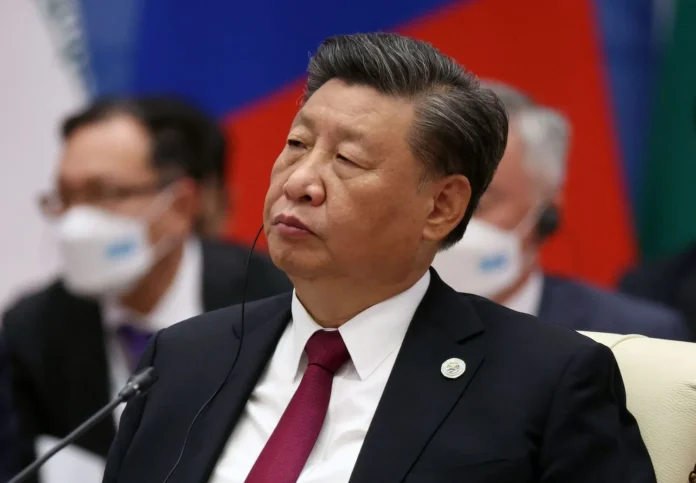James Palmer
Last weekend, an entirely unsupported claim about China—that Gen. Li Qiaoming had launched a coup against Chinese President Xi Jinping—spread like wildfire through the Chinese diaspora and then among Indian media. Xi appeared in public on Tuesday, dispelling any rumors. The coup story was of course false, but it briefly reached a wide audience, prompting even some prominent figures to repeat the rumors.
It’s not completely implausible that Xi might face a coup within the Chinese Communist Party (CCP)—someday. China’s economic and policy failures are growing, as is discontent among the Chinese elite. However, unfounded claims like those from last weekend pop up frequently beyond China. How they spread and why reveals how little is known about the center of Chinese politics and how badly it can be misunderstood.
The recent coup rumors followed a familiar pattern. The anti-CCP parts of the Chinese diaspora are often abuzz with stories of intrigue in Beijing’s inner circles, mostly based on nothing. Social media has amplified stories once only shared in minor exile newspapers or among gossipy circles. In this case, a claim by a dissident journalist that flights in China were being canceled started the rumor. (The first sign of a real coup would be a seizure of China’s propaganda organs.)
The global Falun Gong movement—a new religious movement that was banned in China in 1999—is prone to sharing conspiratorial stories and usually plays a key role in promoting these rumors. A Falun Gong-affiliated journalist picked up on the rumors on Sept. 23, tweeting about them many times. From there, Indian media—most notably, the nationalistic channel India TV—and some politicians amplified the story. It eventually died down as more knowledgeable China scholars refuted it repeatedly.
So what do the recent rumors show about Chinese politics?
First, the CCP’s tight control of information sparks rumors. The only so-called evidence of a coup last weekend was that Xi had not appeared in public since his return from Central Asia on Sept. 22. The Chinese leader is often absent for periods of time; he is a human—one who gets the flu and takes holidays. But because the CCP is so protective of its leadership, it can never admit that he’s sick or on vacation. That would disrupt the image of leaders as striving and heroic, not vulnerable.
The guardedness is a holdover from the CCP’s history as an underground movement, and it is a trait shared across Chinese institutions, both private and public. The CCP leadership simply doesn’t share with outsiders, and investigating their private lives is a short route to serious trouble in China. It’s possible that Xi and his entourage were simply quarantining after spending time abroad. But the government couldn’t just announce that.
Most of the world is unaware of daily realities in China. The news of flight cancellations may have seemed suspicious—if not for the fact that Chinese flights have been frequently canceled under the zero-COVID regime, as people in China are all too aware. The later claim that an 80-kilometer-long convoy (almost 50 miles) had surrounded Beijing, on the other hand, required believing that none of the capital’s tens of millions of residents would post photos of it. Censorship in China is heavy, but it’s not all encompassing.
The gap between the outside world’s knowledge of life in China and the reality on the ground has only grown because of isolation during the pandemic. Notably, Indian media outlets with correspondents in China dampened rather than amplified the rumors.
Finally, the military won’t save China. Rumors about a coup in China almost always focus on the military seizing power. But that fundamentally misunderstands the legitimacy of power in a Leninist state and the tight grip the CCP holds over the military. In both the former Soviet Union and the People’s Republic of China, the army never led power struggles, even if it was a significant part of them. Any hypothetical anti-Xi movement might involve palace bodyguards, but it would be led by members of the CCP itself.
But outsiders look to the military because the working model of many autocratic states involves a military with a history of taking power and presenting itself as the savior of the nation—from Turkey to Thailand. Xi and the CCP have also effectively destroyed any other institution in China that might provide a genuine font of opposition power. As implausible as a military coup is, it might be all that’s left for those wishing for the imminent fall of the CCP.
Foreign Policy




